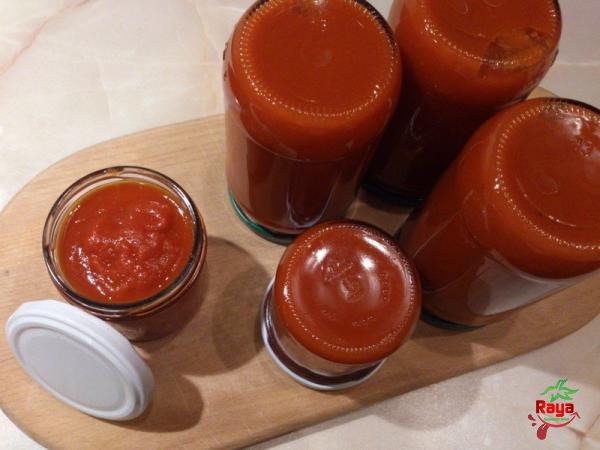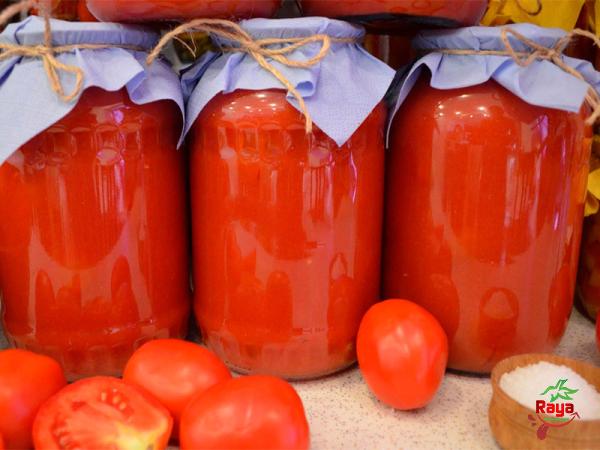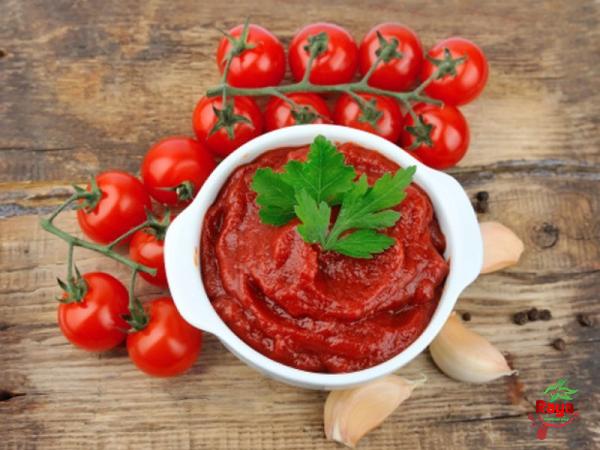A Convenient and Versatile Kitchen Staple Introduction: Canned tomatoes without seeds have become increasingly popular among consumers due to their convenience and versatility in various culinary creations. These tomatoes are carefully processed, removing the seeds while preserving the rich flavor and nutritional value. In this article, we will delve into the benefits, uses, and storage of canned tomatoes without seeds, exploring how they can elevate your cooking experience. Benefits of Canned Tomatoes without Seeds: 1. Enhanced Texture and Flavor: The process of removing seeds from canned tomatoes enhances their texture, resulting in a smoother and more consistent product. Without the presence of seeds, the flavor of the tomatoes becomes more pronounced, making them ideal for a wide array of dishes. 2. Time and Effort Savings: Preparing fresh tomatoes from scratch can be time-consuming and messy, especially when removing seeds. Canned tomatoes without seeds offer a convenient alternative by eliminating the need for manual deseeding, saving both time and effort in the kitchen. 3. Versatility in Cooking: Canned tomatoes without seeds offer immense versatility in cooking. They can be used as a base for various sauces, soups, stews, and salsas, contributing to a well-rounded and balanced flavor profile without unsightly seeds. Additionally, their taste remains consistent throughout the year, unlike fresh tomatoes that are subject to seasonal variations. Uses and Culinary Applications of Canned Tomatoes without Seeds: 1. Pasta Sauces: Canned tomatoes without seeds serve as an excellent base for pasta sauces, providing a smooth and velvety texture. Whether you’re preparing a classic marinara, a rich bolognese, or a vibrant arrabbiata sauce, these tomatoes lend depth and a robust flavor to your dishes. 2. Soups and Stews: Incorporating canned tomatoes without seeds into soups and stews adds depth and body to your recipes. Tomato bisque, minestrone, chili, and vegetable-based soups benefit from the added flavor and smooth consistency of these tomatoes. 3. Salsas and Dips: Canned tomatoes without seeds are a great addition to salsas and dips, ensuring a uniform texture throughout. Whether you’re making a mild salsa for dipping tortilla chips or a spicy pico de gallo to top your tacos, these tomatoes provide the necessary acidity and flavor for a delightful end result. 4. Tomato-based Curries: The naturally sweet and tangy profile of canned tomatoes without seeds makes them an ideal choice for tomato-based curries. They add depth and complexity to Indian, Thai, and other Asian-inspired curries, delivering a well-rounded flavor experience. 5. Pizza and Flatbreads: Canned tomatoes without seeds can also serve as an excellent pizza and flatbread sauce. Their smooth consistency ensures an even spread, while their rich flavor provides a satisfying tomato base for your delicious creations.

tomato paste
 Storage and Shelf Life: Canned tomatoes without seeds have a longer shelf life compared to fresh tomatoes. Most commercially packaged options can be stored for up to one year, which allows for convenient meal planning and pantry stocking. It is important to check the expiration date on the cans and ensure proper storage in a cool, dry place away from sunlight. When opened, any unused portion of the canned tomatoes should be transferred to an airtight container and refrigerated. Properly stored, they can last for several days, although it is recommended to consume them within a few days for optimal quality and taste. It’s worth noting that canned tomatoes without seeds may contain added preservatives or salt. If you prefer a low-sodium option or prefer to avoid preservatives, there are alternative brands that offer these options. Always check the label for specific details and choose products that align with your dietary preferences. Conclusion: Canned tomatoes without seeds provide a convenient and versatile option for adding the rich taste of tomatoes to various culinary creations. With their enhanced texture, consistently smooth consistency, and long shelf life, they lend themselves well to a wide range of dishes, from pasta sauces and soups to salsas and curries. By keeping a few cans of these tomatoes in your pantry, you can elevate your cooking experience with minimal effort, enjoying the flavor and convenience they bring to your dishes.Title: Canned Tomatoes without Seeds: A Convenient and Versatile Kitchen Staple I. The Growing Demand for Canned Tomatoes without Seeds With the increasing popularity of canned tomatoes without seeds, the market for this specific product has grown significantly. Consumers are seeking hassle-free options that provide the rich flavor of tomatoes without the inconvenience of seed removal. Many busy individuals and families are opting for canned tomatoes without seeds as a convenient alternative to fresh tomatoes in their daily cooking routines.
Storage and Shelf Life: Canned tomatoes without seeds have a longer shelf life compared to fresh tomatoes. Most commercially packaged options can be stored for up to one year, which allows for convenient meal planning and pantry stocking. It is important to check the expiration date on the cans and ensure proper storage in a cool, dry place away from sunlight. When opened, any unused portion of the canned tomatoes should be transferred to an airtight container and refrigerated. Properly stored, they can last for several days, although it is recommended to consume them within a few days for optimal quality and taste. It’s worth noting that canned tomatoes without seeds may contain added preservatives or salt. If you prefer a low-sodium option or prefer to avoid preservatives, there are alternative brands that offer these options. Always check the label for specific details and choose products that align with your dietary preferences. Conclusion: Canned tomatoes without seeds provide a convenient and versatile option for adding the rich taste of tomatoes to various culinary creations. With their enhanced texture, consistently smooth consistency, and long shelf life, they lend themselves well to a wide range of dishes, from pasta sauces and soups to salsas and curries. By keeping a few cans of these tomatoes in your pantry, you can elevate your cooking experience with minimal effort, enjoying the flavor and convenience they bring to your dishes.Title: Canned Tomatoes without Seeds: A Convenient and Versatile Kitchen Staple I. The Growing Demand for Canned Tomatoes without Seeds With the increasing popularity of canned tomatoes without seeds, the market for this specific product has grown significantly. Consumers are seeking hassle-free options that provide the rich flavor of tomatoes without the inconvenience of seed removal. Many busy individuals and families are opting for canned tomatoes without seeds as a convenient alternative to fresh tomatoes in their daily cooking routines.
Specifications of tomato paste
 II. Market Analysis and Key Players The market for canned tomatoes without seeds is dominated by several key players who offer a range of product options to meet consumer demands. Brands such as Hunt’s, Del Monte, Muir Glen, and San Marzano are renowned for their quality canned tomatoes without seeds. These companies utilize stringent quality control measures to ensure that their canned tomatoes are of exceptional quality and taste. III. Factors Driving the Popularity of Canned Tomatoes without Seeds 1. Convenience: Canned tomatoes without seeds offer a high level of convenience. They eliminate the need for labor-intensive seed removal while still providing the same great taste and versatility as fresh tomatoes. This convenience factor is particularly appealing to busy individuals who want to prepare delicious meals without spending excessive time in the kitchen. 2. Consistency of Flavor: Canned tomatoes without seeds provide a consistent and reliable flavor throughout the year. Unlike fresh tomatoes, which can vary in taste depending on the season and quality, canned tomatoes ensure a predictable flavor profile that can be depended upon for culinary creations. 3. Extended Shelf Life: Canned tomatoes without seeds have a longer shelf life compared to fresh tomatoes. This makes them an attractive choice for consumers who want to have tomatoes on hand at all times, without worrying about spoilage or wastage. The extended shelf life allows for better meal planning and reduces the need for frequent grocery shopping trips. 4. Versatile Usage: Canned tomatoes without seeds are extremely versatile and can be used in a wide range of dishes. They serve as an excellent base for sauces, soups, stews, dips, and curries, providing a consistent texture and flavor that enhances the overall dish. 5. Health Benefits: While fresh tomatoes are renowned for their nutritional value, canned tomatoes without seeds retain many of these health benefits. They are packed with vitamins, minerals, and antioxidants, making them a valuable addition to a balanced diet. Additionally, the removal of seeds eliminates potential digestive issues for individuals who have difficulty digesting tomato seeds. IV. Target Market and Consumer Preferences The target market for canned tomatoes without seeds includes home cooks, busy professionals, working parents, and individuals who value convenience in the kitchen. These consumers are seeking high-quality canned tomatoes that save them time and effort while still offering the flavor and versatility they desire. In recent years, there has been an increasing focus on healthier diets among consumers. Therefore, brands that provide organic or low-sodium options of canned tomatoes without seeds are likely to attract this health-conscious segment of the market.
II. Market Analysis and Key Players The market for canned tomatoes without seeds is dominated by several key players who offer a range of product options to meet consumer demands. Brands such as Hunt’s, Del Monte, Muir Glen, and San Marzano are renowned for their quality canned tomatoes without seeds. These companies utilize stringent quality control measures to ensure that their canned tomatoes are of exceptional quality and taste. III. Factors Driving the Popularity of Canned Tomatoes without Seeds 1. Convenience: Canned tomatoes without seeds offer a high level of convenience. They eliminate the need for labor-intensive seed removal while still providing the same great taste and versatility as fresh tomatoes. This convenience factor is particularly appealing to busy individuals who want to prepare delicious meals without spending excessive time in the kitchen. 2. Consistency of Flavor: Canned tomatoes without seeds provide a consistent and reliable flavor throughout the year. Unlike fresh tomatoes, which can vary in taste depending on the season and quality, canned tomatoes ensure a predictable flavor profile that can be depended upon for culinary creations. 3. Extended Shelf Life: Canned tomatoes without seeds have a longer shelf life compared to fresh tomatoes. This makes them an attractive choice for consumers who want to have tomatoes on hand at all times, without worrying about spoilage or wastage. The extended shelf life allows for better meal planning and reduces the need for frequent grocery shopping trips. 4. Versatile Usage: Canned tomatoes without seeds are extremely versatile and can be used in a wide range of dishes. They serve as an excellent base for sauces, soups, stews, dips, and curries, providing a consistent texture and flavor that enhances the overall dish. 5. Health Benefits: While fresh tomatoes are renowned for their nutritional value, canned tomatoes without seeds retain many of these health benefits. They are packed with vitamins, minerals, and antioxidants, making them a valuable addition to a balanced diet. Additionally, the removal of seeds eliminates potential digestive issues for individuals who have difficulty digesting tomato seeds. IV. Target Market and Consumer Preferences The target market for canned tomatoes without seeds includes home cooks, busy professionals, working parents, and individuals who value convenience in the kitchen. These consumers are seeking high-quality canned tomatoes that save them time and effort while still offering the flavor and versatility they desire. In recent years, there has been an increasing focus on healthier diets among consumers. Therefore, brands that provide organic or low-sodium options of canned tomatoes without seeds are likely to attract this health-conscious segment of the market.
buy tomato paste
 V. Packaging and Labeling Packaging plays a crucial role in attracting consumers to canned tomatoes without seeds. Brands that invest in eye-catching designs and clear labeling, highlighting the removal of seeds, can differentiate themselves in the market. Consumers are drawn to packaging that communicates the product’s features, nutritional value, and any additional certifications such as organic or gluten-free. VI. The Importance of Quality Control and Sourcing To ensure consistent quality, reputable brands of canned tomatoes without seeds prioritize strict quality control measures throughout the production process. This includes careful sourcing of tomatoes from trusted farms that adhere to sustainable and ethical farming practices. By maintaining high standards, brands can provide consumers with a product that meets their expectations and enhances their culinary creations. VII. Marketing and Promotion Strategies Brands should focus on educating consumers about the benefits of using canned tomatoes without seeds through various marketing channels. This can include social media campaigns, cooking tutorials, and collaborations with influencers or professional chefs to showcase the versatility and convenience of the product. VIII. Potential Challenges and Future Opportunities While the demand for canned tomatoes without seeds is growing, there are a few challenges that brands in this market may face. Some consumers still prefer the authenticity and taste of fresh tomatoes, so educating them about the convenience and benefits of canned tomatoes without seeds will be key. However, the increasing interest in healthier lifestyles and the growing awareness of the benefits of cooking at home present ample opportunities for brands. By leveraging these trends and continuously innovating their product offerings, companies can capture a larger share of the market and cater to evolving consumer needs. IX. Conclusion Canned tomatoes without seeds have gained significant popularity among consumers looking for a convenient and versatile option in their cooking. Their enhanced texture, consistent flavor, and extended shelf life make them an ideal choice for a wide range of dishes. As the market continues to grow, brands should focus on quality, differentiation, and effective marketing strategies to capitalize on this trend and meet the evolving demands of consumers.
V. Packaging and Labeling Packaging plays a crucial role in attracting consumers to canned tomatoes without seeds. Brands that invest in eye-catching designs and clear labeling, highlighting the removal of seeds, can differentiate themselves in the market. Consumers are drawn to packaging that communicates the product’s features, nutritional value, and any additional certifications such as organic or gluten-free. VI. The Importance of Quality Control and Sourcing To ensure consistent quality, reputable brands of canned tomatoes without seeds prioritize strict quality control measures throughout the production process. This includes careful sourcing of tomatoes from trusted farms that adhere to sustainable and ethical farming practices. By maintaining high standards, brands can provide consumers with a product that meets their expectations and enhances their culinary creations. VII. Marketing and Promotion Strategies Brands should focus on educating consumers about the benefits of using canned tomatoes without seeds through various marketing channels. This can include social media campaigns, cooking tutorials, and collaborations with influencers or professional chefs to showcase the versatility and convenience of the product. VIII. Potential Challenges and Future Opportunities While the demand for canned tomatoes without seeds is growing, there are a few challenges that brands in this market may face. Some consumers still prefer the authenticity and taste of fresh tomatoes, so educating them about the convenience and benefits of canned tomatoes without seeds will be key. However, the increasing interest in healthier lifestyles and the growing awareness of the benefits of cooking at home present ample opportunities for brands. By leveraging these trends and continuously innovating their product offerings, companies can capture a larger share of the market and cater to evolving consumer needs. IX. Conclusion Canned tomatoes without seeds have gained significant popularity among consumers looking for a convenient and versatile option in their cooking. Their enhanced texture, consistent flavor, and extended shelf life make them an ideal choice for a wide range of dishes. As the market continues to grow, brands should focus on quality, differentiation, and effective marketing strategies to capitalize on this trend and meet the evolving demands of consumers.









Your comment submitted.